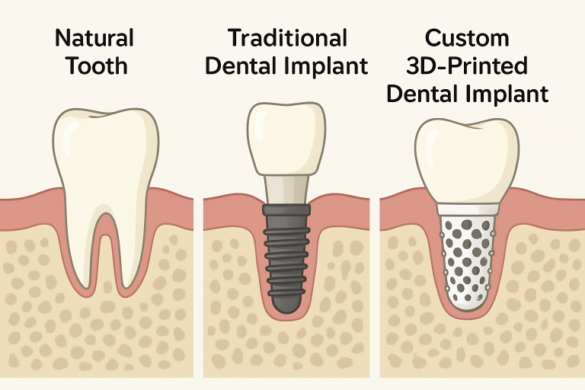 Have you ever sat in a doctor’s office and felt totally lost? One second they’re talking about your health, and the next they’re throwing out words that sound more like science fiction than real life. “We’re monitoring your creatinine,” or “This looks like a contraindication.” What? Most people don’t speak “medical,” but the doctors and nurses act like everyone should understand. That’s when things get confusing, scary, and even dangerous—especially if something important gets missed or misunderstood.
Have you ever sat in a doctor’s office and felt totally lost? One second they’re talking about your health, and the next they’re throwing out words that sound more like science fiction than real life. “We’re monitoring your creatinine,” or “This looks like a contraindication.” What? Most people don’t speak “medical,” but the doctors and nurses act like everyone should understand. That’s when things get confusing, scary, and even dangerous—especially if something important gets missed or misunderstood.
That’s where patient advocates come in. They’re kind of like translators—but for real life. They help regular people understand what’s going on with their health, make sense of the options, and speak up when something doesn’t feel right.
The Problem with Medical Jargon
Doctors and nurses go to school for years and learn all kinds of complicated terms. That makes sense—they need to be super smart to do their jobs. But when they use all those terms around people who don’t have medical training, it can feel impossible to keep up. It’s not just about big words, either. It’s also about fast explanations, confusing instructions, and tons of paperwork.
When someone’s sick or injured, they’re already stressed out. Add on confusing conversations, insurance forms, test results, and five different specialists giving five different opinions, and it’s easy to feel overwhelmed. Even adults who are usually super confident can shut down when a doctor starts using medical lingo.
And here’s something important—not understanding what’s happening can lead to serious mistakes. People sometimes take the wrong medication, miss important follow-ups, or agree to treatments they don’t fully understand. That’s not just confusing. It’s risky.
How a Patient Advocate Can Help
This is exactly why having a patient advocate can make a huge difference. Think of them as someone who knows how hospitals and clinics work, and who’s totally focused on helping the patient—not the system. They don’t replace doctors or nurses. Instead, they help explain what’s happening, make sure nothing gets missed, and ask questions when something seems off.
In a place like Arizona, where healthcare systems can be especially complex and stretched thin, having someone local who knows how things work is even more important. If things get complicated or hard to manage, an Arizona patient advocate can step in and make sure the person gets the right care, at the right time, and in a way they can understand.
For example, let’s say someone is in the hospital after surgery. The doctors come in at 6 a.m. to talk about test results, and the person barely remembers what they said by breakfast. A patient advocate can go over everything again in normal language, explain what to expect, and even help the family ask the right questions. They might notice if a test was missed, if there’s a mix-up with the medications, or if someone forgot to schedule a follow-up.
It’s not about being dramatic—it’s about being safe, informed, and heard.
What Kinds of Things Do Patient Advocates Do?
Patient advocates can help with a bunch of different things. Some work directly with hospitals, while others are independent and hired by families. But no matter where they come from, their goal is always the same: make things easier to understand and less stressful.
Here are a few things they often do:
- Explain medical terms and paperwork in plain English
- Ask doctors follow-up questions if something is unclear
- Help patients speak up about concerns or preferences
- Make sure all parts of care are working together—especially if there are lots of doctors involved
- Keep an eye out for mistakes or mix-ups
- Help with insurance forms and billing issues
For older adults, people with serious health problems, or anyone who struggles with understanding medical info, this kind of support can be a total game-changer.
Why This Matters More Than Ever
These days, healthcare is more complicated than ever. People might see one doctor for their heart, another for their bones, and someone else for their medicine. Each one might work at a different clinic, use a different app, and send reports that don’t automatically go to the same place. That’s a lot to keep track of.
And for people who don’t speak English as their first language—or who have trouble reading or remembering things—it’s even harder. Patient advocates can bridge those gaps. They slow things down. They repeat what matters. They make sure the person at the center of all this—the patient—actually knows what’s going on.
Even people who are usually super sharp can feel confused in a medical setting. Between stress, fear, pain, and a dozen people walking in and out of the room, it’s easy to lose track. That’s totally normal. The hospital isn’t built to make everything simple. That’s not because the doctors don’t care—it’s just the way the system works. That’s why it helps to have someone by your side who understands the system and can help you through it.
Real-Life Examples
Let’s say someone’s dad goes into the hospital for chest pain. After a bunch of tests, the doctor says something about “cardiac enzymes” and “possible intervention,” but doesn’t go into detail. The nurse mentions discharge the next day, but no one talks about how follow-up care will work.
That’s the kind of moment where a patient advocate can step in. They can ask: “What do those test results mean in plain language?” or “Can you walk us through the next steps, like medications and appointments?” They’re not there to be pushy—they’re there to make sure nothing slips through the cracks.
Another example: A woman gets a cancer diagnosis and is handed a giant folder of paperwork. She doesn’t know what to read first or who to call. A patient advocate can organize that information, explain her options, help schedule second opinions, and even go with her to appointments so she doesn’t feel alone.
What to Look for in a Good Advocate
Not all patient advocates are the same. Some have medical backgrounds, like nurses or social workers. Others are trained specifically in advocacy and communication. The most important thing is that they’re focused on the patient and willing to explain things without rushing.
A good advocate should be:
- Easy to talk to
- Good at explaining things clearly
- Not afraid to ask questions or double-check details
- Familiar with local healthcare systems and rules
Whether they’re hired privately or offered by a healthcare provider, their job is to make sure the patient gets treated with respect, care, and clarity.
When to Ask for Help
Anyone can use a patient advocate, but there are certain situations where it really makes sense to get one involved:
- After a serious diagnosis
- Before or after surgery
- When seeing lots of specialists
- If a patient is older, has memory issues, or struggles with language
- When things feel rushed or confusing
- If something just doesn’t feel right
It’s always okay to ask questions in a hospital. But sometimes it helps to have someone else doing the asking, especially if it’s hard to know what to say.
Here’s What It All Comes Down To
Hospitals aren’t always easy to understand. Even smart, confident people get overwhelmed when doctors talk too fast, use strange words, or act like everyone knows what they mean. That’s not the patient’s fault. And it’s not something people should have to figure out alone.
A patient advocate helps make sense of it all. They speak the language of healthcare, but they also speak human. They’re the connection between complicated systems and real people who just want to get better.
So if medical visits ever feel like trying to read a textbook in another language, it might be time to get help from someone who knows how to translate.









